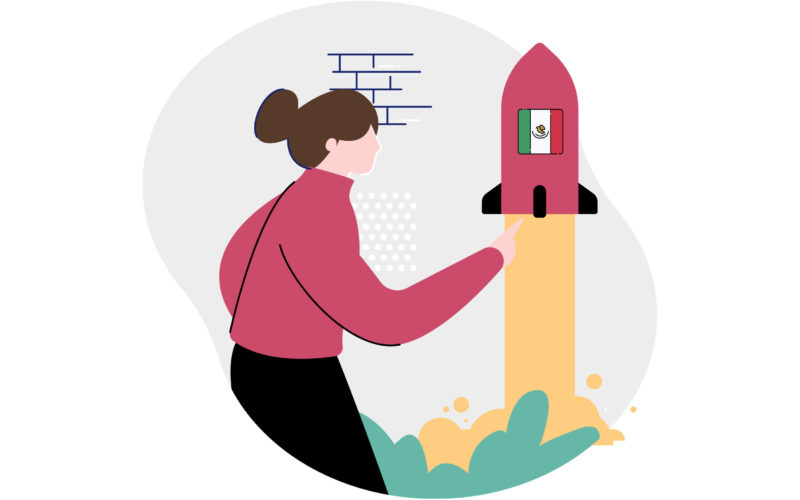Mexico’s first unicorn appeared less than two years ago: Kavak was the first Mexican startup to reach the 1 billion mark in October 2020. Since then, seven other unicorns have been born in this country. But this was the consequence of many years of evolution in Mexico’s startup ecosystem. It did not become one of Latin America’s most robust entrepreneurship hubs overnight.
Startups are being created locally in exponential numbers, but also many Latin American entrepreneurs from other countries are arriving to expand their businesses here. They know that conquering the Mexican market means they can succeed anywhere. A 2022 study by Endeavor reports, “Mexico is the top destination market for expansion processes within the region.”
According to Goldman Sachs, Mexico will represent the world’s fifth largest economy by 2050. Mexico has a population of over 126 million people, close ties to the United States, a well-developed industrial sector, and a high smartphone and Internet use. These characteristics make it a particularly fertile ground for startups. It was also one of the first countries in the region to regulate the fintech sector, as in 2017, it passed a law that placed Mexico on par with the international community. Also, already ten years ago, the country produced graduates in engineering and technology at rates similar to those in the United States.
We could trace the beginnings of the startup buzz in Mexico back to 2006. This was when the international business development program TechBA selected fifty Mexican individuals to travel to Silicon Valley to learn about startup entrepreneurship.
This laid the ground for two TechBa participants, Santiago Zavala and Cesar Salazar, to replicate the Super Happy Dev House movement in Mexico City. In short, it consisted of events where technology enthusiasts gathered around the “hacker culture.” Zavala and Salazar also founded the Mexican.VC accelerator, which was acquired in 2012 by 500 Startups. Alta Ventures was another local VC fund that began to raise capital for upcoming startups.
Specifically, the event that encouraged the creation of a more established investment network for startups was the first conference of the Mexican Association of Venture Capital and Private Equity in 2009. Around the same time, one of the most influential angel investors in Mexico, Hernán Fernández, founded Angel Ventures. And a few years later, the National Entrepreneurship Institute (INADEM) was created for the government to go all-in on funding innovation.
One of the entrepreneurship cases worth mentioning is Linio, one of the first e-commerce companies in Mexico. As it entered a market with a non-existent ecosystem, Linio had to create support systems and build an e-commerce culture from scratch. But Linio’s most exciting legacy was the Linio Mafia. Former Linio employees built over 66 companies in Latin America: a multiplier effect similar to Paypal Mafia.
Since then, local VC funds have continued to invest in Mexican startups, and international investors have also started to pour funds into the country. VC investment grew at such a high rate that in 2021 Mexico recorded a $3.8B capital influx. Fintech has been the most relevant sector for venture capital throughout the years, specifically in the following segments: loans, payments and remittances, business finance management, and crowdfunding. To put it into perspective, five of the leading fintech players in Mexico alone have raised $686.8M.
World-class venture capital funds arrived in Mexico as local startups reached advanced stages and began looking for Series C and D financing. Some of these global funds are Softbank, Sequoia Capital, Andreessen Horowitz, Goldman Sachs, Temasek, DST, and Tencent. Before 2016, foreign VCs led practically no investments in Mexican startups.
But since 2019, the number of deals led by global VCs has multiplied, and their presence grew stronger even during the pandemic. When the pandemic started in 2020, Mexico had zero unicorn startups. Fast forward to 2022, 8 unicorns were born on this ground. The first one, Kavak, reached unicorn status after a $400M round where Softbank and DST participated. Today, Kavak’s valuation is around $8.7B.
Global funding appearing on Mexico’s scene was a significant milestone, as it provided large amounts of capital and a profound understanding of how to scale up promising businesses. As some of the most prominent startups in Mexico continue to grow, new mafias with years of accumulated expertise will arise to build even better businesses. Local entrepreneurship has immense potential, and foreign VCs are only starting to scratch its surface.


